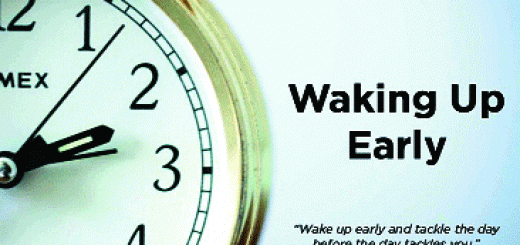Quran Before, During and after Ramadan
Some of us excel in math, some in fine arts (and there is of course the rare talent who does both). Our interests may be equally if not more so disparate, as environmental activists and coin collectors. And our professions may differentiate us still further, as neurosurgeons, homemakers and school principals. Nonetheless, there is a clear, singular goal for Muslims: aspiring to the character of Prophet Muhammed . At the end of the day, and the beginning, life is not complicated if we follow this prescription. Few of us will play the esteemed role of sheikh, but each has the capacity to model our lives along that of God’s blessed, final messenger.
Too often we take this prescription literally, arguing about the merit of the miswak over the toothbrush, or insisting that our turban is a closer approximation to what Prophet Muhammed wore. Disagreements ensue all too often about beard length. Reliving his life is not, however, our mission; instead, replicating his behavior is, and that is why he is as relevant to men as he is to women. Of course, at times, in aiming to replicate behavior we may venture into history and its minutiae. Yet it is incumbent on all of us to constantly question form, content and the wisdom underlying them. Does, for instance, our use of miswak, donning of the turban and measuring beard length ultimately help us model prophetic qualities of cleanliness, modesty and taqwah, or are there alternate forms that are equally viable to help achieve these same prophetic characteristics?
And what relevance does this daily exercise in modeling behaviors, and struggling with form and content, have to do with preparing oneself and one’s Qur’an for the holy month of Ramadan? Otherwise stated, how does the act of trying to replicate prophetic character relate to our engagement with our mushaf for 30 days and nights while fasting?
Prophet Muhammed has been described as a living Qur’an; his thoughts and actions were all guided and inspired by Allah and he proved among the most obedient and perfect servants of us all. This perfection was in turn intended as a mercy and guide for humankind: to help navigate life, peacefully, productively, and in constant remembrance of the Creator. The Qur’an was sent down with the same purpose. Thus we received both living model and book, complements of each other, and a complete strategy for how to approach life (regardless of what time period we may live in, or the interests and the professional paths we choose). We were gifted a truly universal message embodied in the person of the Prophet and the Qur’an.
If the Prophet is a compliment of the Qur’an and vice versa, then, to reiterate, what should we do specifically during Ramadan to engage with both the living model of the Qur’an and the Qur’an itself? There are well documented accounts of communal and individual ibaadah for Ramadan, from the taraweeh prayer to the i’tikaf, all of which were undertaken by the living Qur’an and his companions. It is not the goal of this short essay to replicate those efforts.
Ramadan is meant as intense character training and its lessons are applicable year-round. Therefore what follows is a short and hopefully simple series of recommendations to consider as we approach Ramadan. These recommendations seek to build on the main points above and are informed by elders and teachers modeling theSunnah; the points are potentially relevant to ‘reading’ the Qur’an in Ramadan, but go beyond a mere literary experience to one which seeks embodiment of prophetic character insha’Allah:
In the month leading up to Ramadan, throughout all the holy month and thereafter, may we attempt to focus our gaze on both the wisdom of the Qur’an and the living model of Prophet Muhammed , and recognize that they are in fact compliments of one another.
For some, meditation and study may occur best in the early hours of the morning; for others, it will be mid-day; whatever may be the time and its duration, may we attempt each day to engage with the two greatest miracles of our life, through prayer, tilawat, reflection and action.
Just as the Qur’an is matched with a perfect example and teacher, our own reflection and growth is enhanced by an instructor. May we therefore seek out a trusted and qualified teacher and guide, in an effort at striving toward the actual character of Muhammed , the living Qur’an.
Related, every time we interact with the Qur’an and the model of Prophet Muhammed , may we do so in an effort to improve our own character, not the character of our spouse, our non-Muslim neighbor, or our co-worker etc; the journey is one of inward perfection, and not outward judgment, as we each aspire in our own right to be living Qur’an as well.
To the world, may we be of service, for that was the Sunnah of the Prophet , and that is what is outlined ayah after ayah in the Qur’an. Just as we excel in different ways, service may take myriad forms. The nurses among us may heal; the artisans, craft; the architects, design; the relief workers, rescue etc. Regardless of what form it may take, striving toward the ideal of service, as a way of life, is what is key.
I pray that we are always in remembrance of Allah and that our striving to become living Qur’ans ourselves is unceasing. I pray that all our ibaadah are accepted and that there is profound healing and enlightenment before, during and after the blessed month of Ramadan, insha’Allah. n














Recent Comments